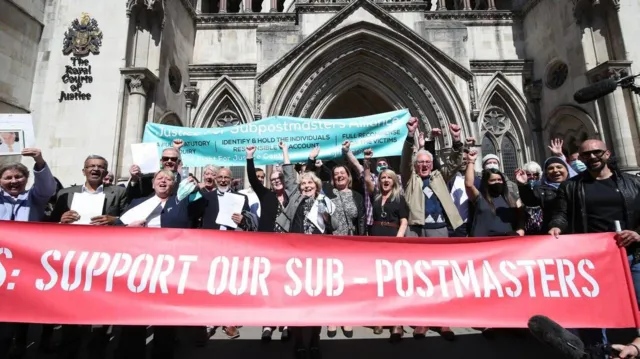Post Office Scandal: Inquiry Reveals Devastating Human Toll and Urges for Justice
Post Office Scandal: Inquiry Reveals Devastating Human Toll and Urges for Justice
The first report from the official inquiry into the Post Office Horizon IT scandal has starkly illuminated the “disastrous” human cost endured by hundreds of sub-postmasters who were wrongly accused and prosecuted. Sir Wyn Williams’ comprehensive report details the profound suffering, including mental health crises, broken families, and tragically, loss of life, stemming from the faulty Horizon accounting software.
The inquiry found that at least 59 individuals contemplated suicide, with 10 actively attempting to end their lives. Sir Wyn Williams’ findings suggest that over 13 people may have died as a direct consequence of the scandal. The report underscores the immense psychological damage inflicted, with many victims experiencing severe mental health issues, including anxiety, depression, and alcohol dependency as a coping mechanism. One sub-postmistress shared her harrowing experience of needing rehabilitation for alcohol addiction, stating, “the Post Office had turned her to drink to cope with the losses.” Marital breakdowns and ruined reputations were also common, leaving a trail of devastation in communities across the UK.

In response to these revelations, the Post Office issued an “unreserved” apology, acknowledging the “shameful period in our history” and pledging to carefully consider the report’s recommendations. The scale of the suffering has led to urgent recommendations from Sir Wyn, including the provision of free legal advice for claimants and compensation for close family members of those affected. Furthermore, the report calls for a restorative justice program, involving direct engagement between victims, the Post Office, and the government.
Sir Wyn also critically examined the complexities and perceived inadequacies of the existing compensation schemes. He expressed concern that the Post Office and its advisors have frequently adopted an “unnecessarily adversarial attitude” when making initial compensation offers, particularly in complex cases. With approximately 10,000 eligible individuals currently seeking redress—a figure expected to rise—the government has been urged to clearly define “full and fair financial redress” and to implement reforms to the current compensation processes.
While a subsequent report will delve deeper into the systemic failures and accountability, this initial volume strongly indicates that employees from both the Post Office and Fujitsu were aware, or should have been aware, of the Horizon software’s inherent “bugs, errors and defects” that could erroneously impact branch accounts. The government is expected to respond to Sir Wyn’s findings by October 2025.
The government has affirmed that close family members of Horizon claimants who suffered personal injury, including psychological distress, due to their relative’s ordeal will be eligible for compensation. However, Post Office minister Gareth Thomas noted the “very difficult issues” involved, particularly the requirement for written evidence of injury made at the time, barring exceptional circumstances. He assured that the government is committed to supporting these family members who have endured the most significant suffering.
The financial repercussions extend beyond the victims, with newly published government figures revealing that the total legal costs associated with the operational delivery of the Horizon redress schemes have climbed to £100 million. Notably, the law firm Herbert Smith Freehills received £67 million for their work on the Horizon Shortfall Scheme alone. This has drawn criticism from campaigners like Jo Hamilton, a former sub-postmaster, who described the situation as “just mad” that “millions [are being] spent on lawyers to pull the claims apart” for which the government had already funded the claims.
Hamilton hailed the report as “huge” for laying bare the extent of the suffering, expressing anticipation for the subsequent investigations into culpability.



Post Comment